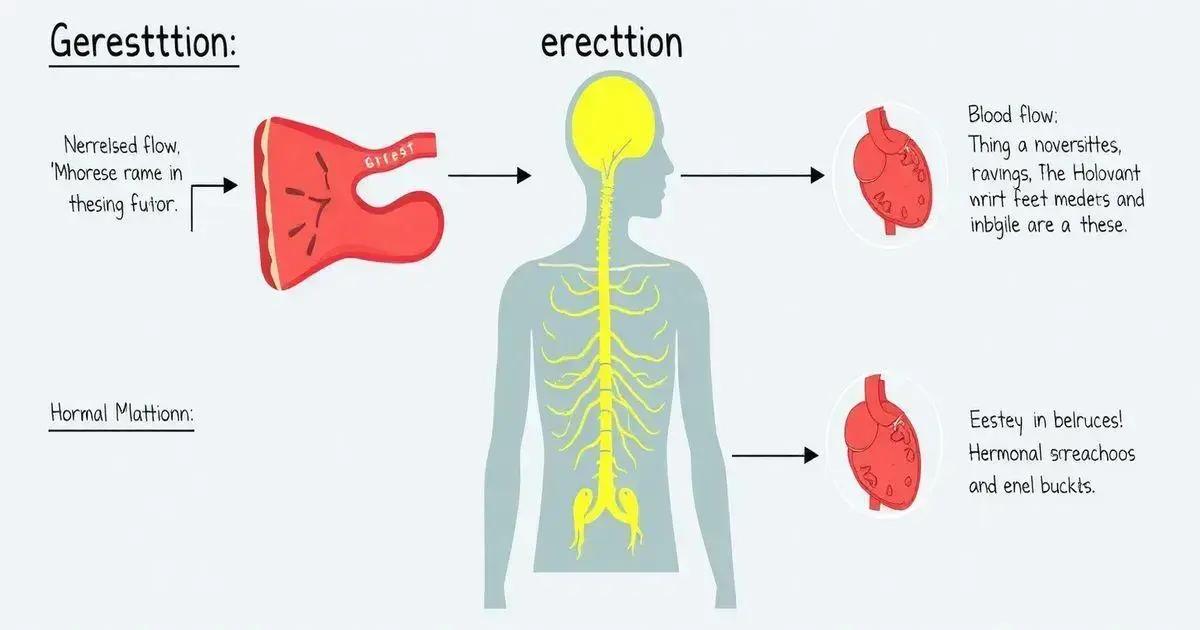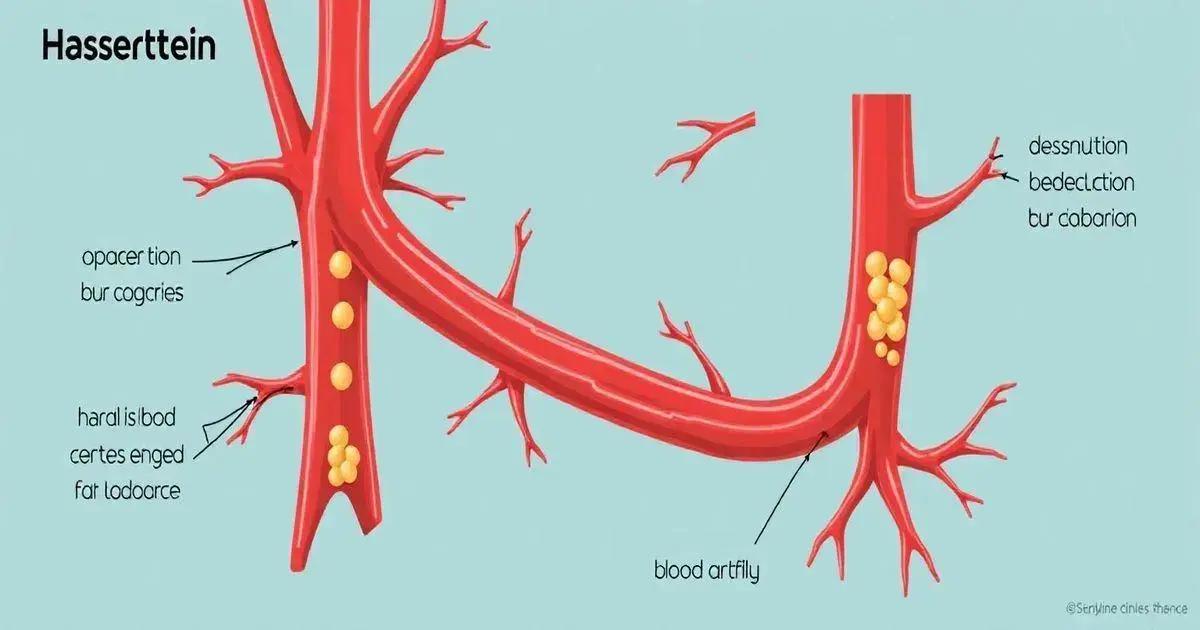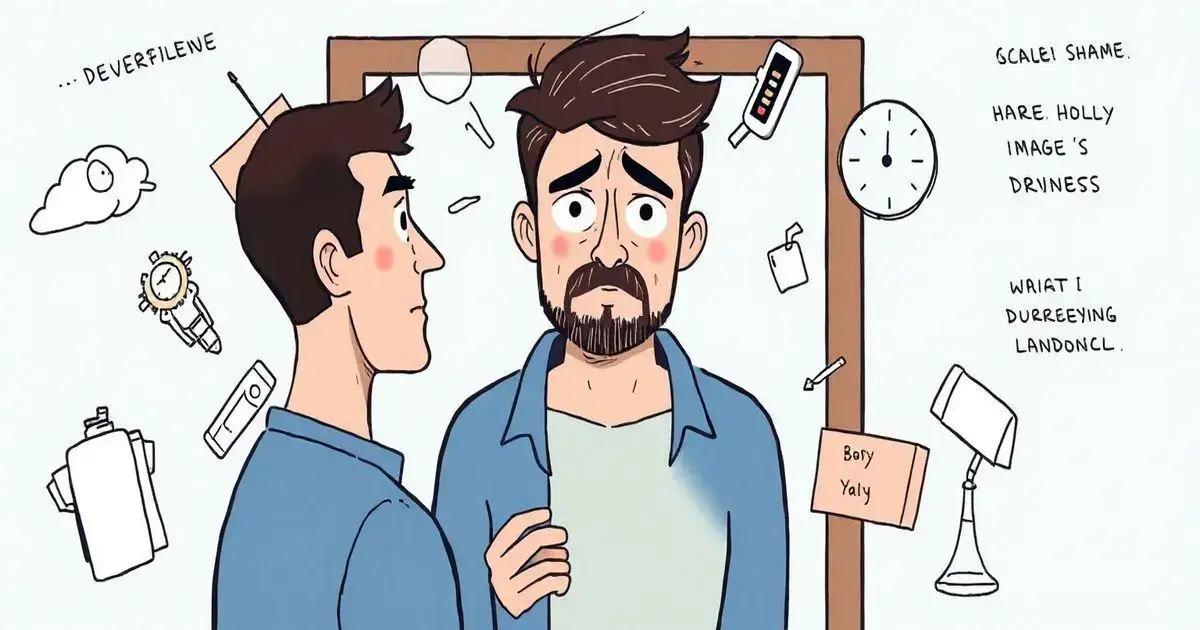Obesity contributes to erectile dysfunction through impaired blood flow, hormonal imbalances, and psychological factors like low self-esteem and anxiety. By adopting a healthy lifestyle, including a balanced diet and regular exercise, individuals can improve their sexual health and combat the effects of obesity.
Obesity is a growing concern in today’s society, and many are unaware of its far-reaching consequences. How does obesity contribute to erectile dysfunction? This question is critical for understanding men’s health as obesity can significantly impact sexual performance and overall well-being. In this article, we will delve into various aspects of obesity, its role in erectile dysfunction, and offer insights into managing these health challenges.
Understanding Obesity and Its Causes

Obesity is a complex health issue affecting millions of people worldwide. Understanding obesity and its causes is vital to addressing its implications for overall health and specific concerns, such as erectile dysfunction. Obesity occurs when an individual has excessive body fat. It is typically measured using body mass index (BMI), a calculation based on height and weight.
Causes of Obesity
The causes of obesity are multifaceted and can be classified into various categories, including:
- Genetics: Some people may be genetically predisposed to gain weight. Genetic factors can affect how your body metabolizes food and stores fat.
- Lifestyle Choices: Poor diet and lack of physical activity are significant contributors. Consuming high-calorie, nutrient-poor foods combined with a sedentary lifestyle often leads to weight gain.
- Psychological Factors: Emotional eating may occur in response to stress, anxiety, or depression. This can create a cycle of overeating and weight gain.
- Socioeconomic Factors: Access to healthy foods and safe spaces for physical activity can be limited in low-income communities, making it harder for individuals to maintain a healthy weight.
- Medical Conditions: Certain medical conditions like hypothyroidism and polycystic ovary syndrome (PCOS) can cause weight gain or make it difficult to lose weight.
- Medications: Some medications may also lead to weight gain as a side effect.
Recognizing these factors is essential for developing effective strategies for prevention and treatment. Maintaining a healthy weight can help mitigate the risks associated with obesity, including erectile dysfunction. As we explore the connection between obesity and erectile dysfunction, understanding these underlying causes will provide important insights.
The Science Behind Erectile Dysfunction

Erectile dysfunction (ED) is a condition where a man has difficulty achieving or maintaining an erection. Understanding the science behind erectile dysfunction involves exploring both physiological and psychological factors that contribute to this issue. Various systems in the body work together to enable an erection, including the nervous and circulatory systems.
Physiological Mechanisms
When a man becomes sexually aroused, the brain sends signals through the nerves to the blood vessels in the penis. This causes the blood vessels to relax and widen, allowing more blood to flow into the penis, leading to an erection. However, several factors can disrupt this process:
- Blood Flow: Conditions such as obesity and heart disease can impair blood flow. Reduced blood flow means less blood reaches the penis, making it difficult to achieve an erection.
- Nerve Function: Damage to the nerves from conditions like diabetes can hinder the signals that promote erections. Healthy nerve function is essential for this sexual response.
- Hormonal Imbalances: Hormones like testosterone play a key role in libido and erectile function. Low testosterone levels can contribute to ED.
- Medications: Certain medications, particularly those used to treat high blood pressure and depression, can have side effects that impact erectile function.
Psychological Factors
In addition to physiological issues, psychological factors can also contribute to ED. Stress, anxiety, and depression can significantly affect sexual performance. Performance anxiety, in particular, can create a cycle where the fear of failure in bed leads to actual difficulty achieving an erection.
Understanding the interplay between these factors is crucial for addressing erectile dysfunction effectively. It is important to adopt a comprehensive approach, considering both medical and lifestyle factors when seeking solutions.
How Obesity Affects Blood Flow

Obesity has significant effects on the body, and one of the crucial aspects it impacts is blood flow. Understanding how obesity affects blood flow can shed light on its role in erectile dysfunction. The body relies on efficient blood circulation for many functions, including sexual health.
How Obesity Impairs Blood Flow
Excess body fat can lead to various complications that impede blood circulation. Some of the primary factors include:
- Blood Vessel Narrowing: Obesity often leads to the buildup of plaque in blood vessels, which narrows them. This condition, known as atherosclerosis, reduces blood flow not only to the penis but also throughout the body.
- Increased Blood Pressure: Higher body weight generally means the heart must work harder, leading to elevated blood pressure. High blood pressure can damage blood vessels over time, further hampering circulation.
- Insulin Resistance: Many obese individuals develop insulin resistance, which can lead to diabetes. Diabetes is known to cause nerve damage and reduce blood flow, which contributes to erectile dysfunction.
- Inflammation: Obesity often results in chronic inflammation throughout the body. This inflammation can impair blood vessels’ ability to expand and contract properly, making it difficult for adequate blood flow to occur during sexual arousal.
When discussing how obesity affects blood flow, it’s important to keep in mind the direct relationship this has with erectile function. Proper blood flow is essential for achieving and maintaining an erection, and any impairment in circulation can lead to difficulties in these areas.
Psychological Impacts of Obesity on Sexual Health

The connection between obesity and sexual health extends beyond physical health; it also includes psychological impacts. Understanding how obesity affects mental well-being can help explain its role in erectile dysfunction. Individuals struggling with obesity often face emotional and psychological challenges that can negatively influence sexual health.
Body Image Issues
Obesity can lead to poor body image and low self-esteem. Many individuals may feel unattractive or undesirable, which can reduce their libido and create anxiety during intimate situations. This anxiety can become a cycle, where negative feelings about one’s body lead to avoidance of sexual situations.
Depression and Anxiety
Obesity is linked to higher rates of depression and anxiety. These mental health conditions can significantly impact sexual health. When someone feels depressed, their desire for intimacy may diminish. Furthermore, anxiety related to performance can make it challenging to feel relaxed and engaged during sexual activity.
Social Stigma
Societal attitudes toward obesity can create additional pressure. Many individuals face discrimination or teasing, which can contribute to feelings of shame and isolation. The fear of judgment can make someone withdraw from sexual encounters, further exacerbating feelings of inadequacy.
Coping Mechanisms
People may use unhealthy coping mechanisms like overeating or substance abuse to deal with the psychological stress associated with obesity. These habits can worsen both obesity and sexual health, leading to a debilitating cycle.
Addressing the psychological impacts of obesity on sexual health is crucial for managing erectile dysfunction. By acknowledging and seeking support for these mental health challenges, individuals may find it easier to improve their physical health and intimacy.
Steps to Improve Sexual Health and Combat Obesity

Improving sexual health and combating obesity involves a combination of lifestyle changes and practical steps. Here are some effective strategies to enhance both areas:
1. Adopt a Healthy Diet
Focus on a balanced diet rich in fruits, vegetables, whole grains, and lean proteins. Reducing processed foods and sugary drinks can help manage weight and improve overall health.
2. Regular Physical Activity
Engaging in regular exercise is crucial. Aim for at least 150 minutes of moderate aerobic activity each week. Activities like walking, swimming, or cycling can enhance cardiovascular health and help reduce body weight.
3. Maintain a Healthy Weight
Setting realistic weight loss goals is essential for long-term success. Losing even a small percentage of body weight can lead to significant health improvements, including better erectile function.
4. Manage Stress
Practicing stress-reducing techniques such as meditation, yoga, or deep breathing can help improve your mental health and enhance sexual well-being. Reducing stress may also aid in weight management.
5. Seek Professional Help
If you’re struggling with weight management or experiencing erectile dysfunction, consider consulting healthcare professionals. They can provide personalized guidance and support, including nutrition counseling and mental health resources.
6. Limit Alcohol and Avoid Smoking
Reducing alcohol consumption and quitting smoking can positively affect both weight and sexual health. These substances can impair blood flow and decrease libido.
By following these steps to improve sexual health and combat obesity, individuals can work toward a healthier lifestyle and potentially reduce the impact of obesity on erectile dysfunction.
In Summary: Addressing Obesity and Erectile Dysfunction
Obesity plays a significant role in contributing to erectile dysfunction through various physiological and psychological pathways. By understanding the impact of obesity on blood flow, hormonal levels, and mental health, individuals can take targeted steps to improve their sexual health.
Implementing healthy lifestyle changes, such as adopting a balanced diet, engaging in regular physical activity, and managing stress, can not only combat obesity but also enhance overall well-being. Seeking professional assistance when necessary can provide further support in achieving these goals.
Ultimately, addressing both obesity and erectile dysfunction can lead to a healthier, happier life, fostering better relationships and improved quality of life.
FAQ – Frequently Asked Questions about Obesity and Erectile Dysfunction
How does obesity contribute to erectile dysfunction?
Obesity affects blood flow and hormone levels, leading to physical changes that can impair sexual function.
What are the psychological effects of obesity on sexual health?
Obesity can lead to poor body image, low self-esteem, depression, and anxiety, all of which negatively impact sexual health.
What steps can I take to improve my sexual health if I am obese?
Adopting a healthy diet, engaging in regular physical activity, managing stress, and seeking professional help can greatly improve sexual health.
How important is blood flow for sexual function?
Good blood flow is crucial for achieving and maintaining an erection; any impairments can lead to erectile dysfunction.
Can weight loss improve erectile dysfunction?
Yes, losing weight can enhance erectile function by improving blood flow, hormone levels, and overall health.
Is it necessary to seek professional help for erectile dysfunction?
Seeking help from healthcare professionals can provide individuals with personalized treatment options and support.












